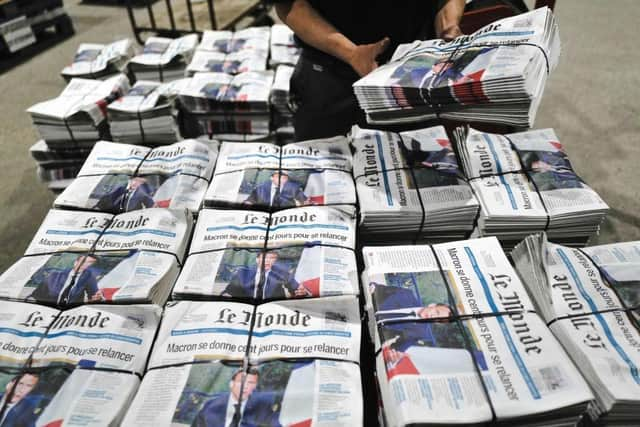How could a Russian 'disinformation campaign' make it look like French media published anti-Ukraine stories?
France has claimed it has uncovered a major Russian disinformation campaign, which created fake anti-Ukraine news stories made to look like they were published by European newspapers and websites, including French publications Le Monde and Le Parisien.
German media including Frankfurter Allgemeine Zeitung, Der Spiegel and Bild, were also targeted in the attack, which French foreign minister Catherine Colonna said had seen newspapers’ websites cloned by Russian hackers.
Advertisement
Hide AdAdvertisement
Hide Ad"France condemns these actions unworthy of a permanent member of the United Nations Security Council," Ms Colonna said. "The French authorities are working closely with their partners to defeat the hybrid warfare led by Russia.”


Ms Colonna said the campaign was carried out by "Russian actors" with "state entities or entities affiliated to the Russian state".
"This campaign is based in particular on the creation of fake web pages impersonating national media and government sites as well as the creation of false accounts on social networks," she said.
Ms Colonna said the French foreign ministry itself had foiled an attempt to create a fake reproduction of its own website – and added Russian embassies and cultural centres had "actively" participated in spreading the fake stories.
"The campaign is a new illustration of the hybrid strategy that Russia is implementing to undermine the conditions for peaceful democratic debate and therefore undermine our democratic institutions,” she said. "No attempt at manipulation will deter France from supporting Ukraine in the face of the Russian war of aggression.”
The pages were believed to be identical to the real sites belonging to the news sites, but with different domain names and with the addition of fake news about Ukraine.
It is understood that on 11 May, Le Parisien filed a complaint in order to recover the fraudulent domain name.
Last year, French president Emmanuel Macron accused Russia of feeding disinformation to further its “predatory project” in African countries, where he said the Russian paramilitary group Wagner was increasing its influence.
Last year, the UK Government banned Russian state TV channel RT, saying it was incapable of providing impartial coverage of the war in Ukraine.
Comments
Want to join the conversation? Please or to comment on this article.
